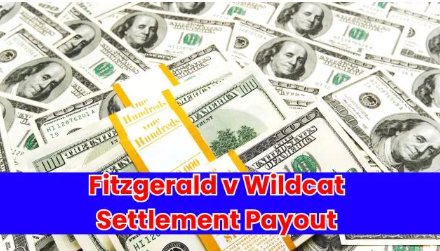- Home
- Fighting Predatory Lenders With NCS
- About Us
-
- White Wolf Capital Launches Private Credit Strategy
- Fitzgerald v Wildcat Settlement
- Rebuild Credit Quickly with Top Secured Credit Cards for Credit Score Repair
- Boost Your Credit: Hack
- Targeted Exploitation
- Debt Consolidation vs Debt Settlement
- Wage Garnishment Laws by State | Know Your Rights in 2025
- Minimum Monthly Payments
- FDCPA
- Contact
Fitzgerald v Wildcat Settlement: A Landmark Consumer Relief Initiative

Introduction
The Fitzgerald v Wildcat Settlement stands as a major win for consumers facing unfair lending challenges. This class action settlement addresses violations of state and federal lending laws by offering debt cancellation alongside cash awards. The initiative paves the way for greater consumer protection and holds lenders accountable for predatory practices.
Background and Allegations
The settlement arose from claims that several lenders, often identified as part of the LDF Lending Companies, breached regulations during loan processing. Consumers alleged that these companies charged interest rates far beyond legal limits and, in some instances, operated without the required licenses. Lenders such as Lendgreen and Makwa Financial, among others, were implicated in these practices. This legal action reflects a broader push for transparent and fair lending in the financial sector.
Settlement Details
A final court order, issued on December 17, 2024, approved the settlement with two main relief measures:
- Debt Cancellation:
Unpaid loan balances with the involved lenders will be cancelled. This measure is projected to eliminate approximately $1.4 billion in debt, bringing immediate fiscal relief to affected borrowers. - Cash Awards:
A dedicated fund of $37.35 million will compensate eligible consumers. After deducting service awards, attorney fees, and administrative costs, the remaining funds will be distributed on a pro-rata basis based on the amount of unlawful interest paid.
Eligibility for the Settlement
To qualify, borrowers must have taken out loans during the defined class period, from July 24, 2016, to October 1, 2023. Key requirements include:
- Loan Origination: The loan must have been secured during the specified period from one of the identified lenders.
- Class Notification: Eligible consumers must have received official notice about this settlement.
- Geographic Considerations: The amount of compensation may vary based on state-specific lending regulations.
Consumers who opt out of the settlement will forfeit these benefits.
Payment Timeline and Distribution
The settlement outlines a clear payout schedule to ensure timely relief:
- Effective Date:
The settlement takes effect on January 16, 2025. - Distribution Period:
Eligible consumers should receive their payments within 60 days of the effective date—approximately by March or April 2025. Verification procedures may slightly adjust this timeline.
For further details and claim submission procedures, borrowers are encouraged to visit the official settlement portal.
Broader Implications for Consumer Protection
The Fitzgerald v Wildcat Settlement emphasizes strict compliance in consumer lending. By holding lenders to account for charging excessive interest and failing to secure licenses, the settlement reinforces the need for transparent lending practices. It also serves as a deterrent against future predatory lending, ultimately aiming to restore trust in the financial marketplace.
Additional Resources and Next Steps
Affected consumers can access more information through these resources:
- Official Settlement Website:
Visit Consumer Loan Settlement for complete details and claim forms. - Settlement Payment Details:
Learn more about payout calculations at the NCBLPC Fitzgerald v Wildcat page. - Claim Submission Portal:
For guidance on how to file a claim, check Claim Depot.
Conclusion
The Fitzgerald v Wildcat Settlement marks a significant turning point for consumer rights in the lending industry. By providing robust debt relief and financial compensation, it sets a clear precedent against predatory lending practices. Stay informed by subscribing to our newsletter and exploring more articles on consumer protection initiatives.